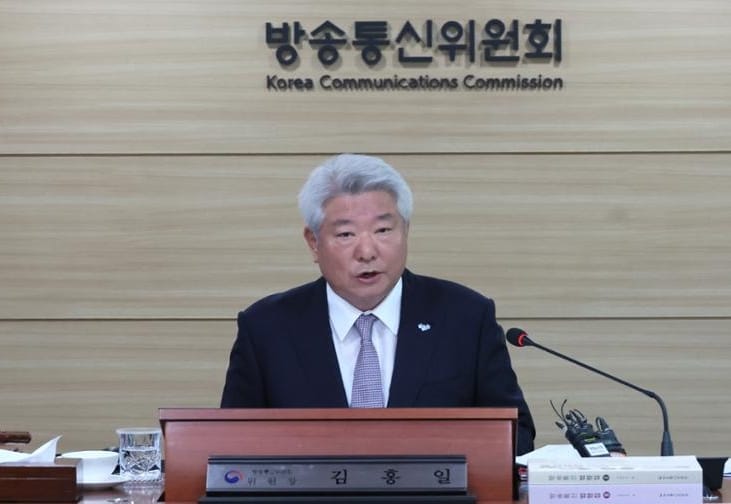Impeachment motion at KCC, Payday Loan Delinquency, Early Childhood Education Changes
Impeachment Motion Filed Against KCC Chairman, Rising Delinquency Rates Sound Alarm on Payday Loans, Early Childhood Education Shake-up Aims for Equity and Quality

Impeachment Motion Filed Against KCC Chairman
The battle for control over South Korea's media landscape intensified this week as the Democratic Party and four other opposition parties jointly filed an impeachment motion against Korea Communications Commission (KCC) Chairman Kim Hong-il. The KCC, which oversees broadcasting and telecommunications regulations, has been at the center of controversy under Kim's leadership since his appointment by President Yoon Suk-yeol last year. The opposition parties cite a litany of alleged abuses of power and legal violations as grounds for impeachment, setting the stage for a high-stakes political showdown.
Chief among the accusations is that Kim has allowed the KCC to operate with only two standing commissioners, both appointed by the president, instead of the legally required five. This "two-member system" enabled the KCC to push through controversial decisions, such as approving a change in the largest shareholder of major cable TV network YTN despite concerns about political influence. Critics argue this illegal composition of the commission undermines its independence and oversight role. Kim has also refused to attend National Assembly hearings and provide requested information, further fueling perceptions of arrogance and unaccountability.
The escalating fight over leadership of the country's top media regulator and public broadcasters reflects a broader trend of deepening partisan polarization in South Korea.
Other charges in the impeachment motion include failing to properly manage the Korea Communications Standards Commission, which opposition lawmakers say has issued excessive and politically biased penalties against media outlets critical of the government. The motion also alleges negligence in the KCC's supervisory duties over public broadcaster TBS. If passed with a majority vote in the National Assembly, the impeachment would result in Kim's immediate suspension from duties pending a final ruling by the Constitutional Court.
In an apparent preemptive move just days before the impeachment filing, the KCC hastily convened a meeting to appoint new presidents of major public broadcasters KBS and MBC, as well as directors for educational network EBS. The current heads of these influential outlets, seen as more politically independent, are due to finish their terms in August and September. The rushed appointments, which typically take months, are widely seen as an attempt to install friendly figures and retain control over the public airwaves before a potential leadership change at the KCC.
Kim Hong-il, for his part, has remained defiant in the face of increasing calls to step down. In a recent National Assembly hearing, he defended the two-member system as "not illegal but undesirable" and indicated he intends to serve out his term. However, some observers point to the precedent set by his predecessor, who resigned voluntarily just hours before a scheduled impeachment vote last year. The ruling People Power Party, which has backed Kim and the current KCC, may urge a similar face-saving exit to avoid an embarrassing impeachment trial.
The Democratic Party, which commands a majority in the National Assembly with 170 out of 300 seats, has vowed to pass the impeachment motion by the end of the current extraordinary session in early July. Floor leader Roh Jong-myeon declared after the party's endorsement of the motion that the two-member KCC "is itself illegal and an abuse of power." The party plans to report the motion in a plenary session on July 2, with a vote required within 24 to 72 hours after that.
In parallel with the impeachment process, the opposition bloc is also pursuing revisions to the laws governing public broadcasters, aiming to diversify the composition of their boards and reduce the influence of political appointees. The proposed changes include increasing the number of directors and allocating more seats to representatives recommended by journalist associations, media academia, and civil society groups. The goal is to fast-track these revisions for passage before the terms of the incumbent KBS and MBC presidents expire, although the ruling party is likely to oppose the move.
Whoever ultimately prevails in this battle, the damage to public confidence in the impartiality and professionalism of both the media and its regulators may be lasting. Recent surveys show trust in the media falling to record lows, with many viewers perceiving both conservative and liberal outlets as overtly partisan. Experts warn that the KCC's credibility as an independent arbiter and defender of press freedoms is also eroding as it becomes increasingly mired in political fights.
Rising Delinquency Rates Sound Alarm on Payday Loans
As living costs surge and job losses mount, South Korea's most economically vulnerable are increasingly turning to high-cost payday loans to make ends meet - and falling into delinquency at alarming rates. The delinquency rate for payday loans from the country's largest lenders topped 12% at the end of last year, the highest level in over a decade, according to new data from the Financial Supervisory Service. For comparison, the overall household loan delinquency rate stands at just under 1%.